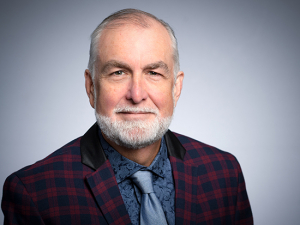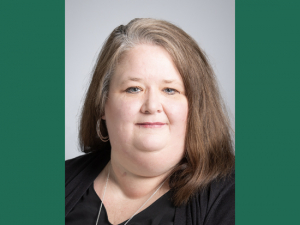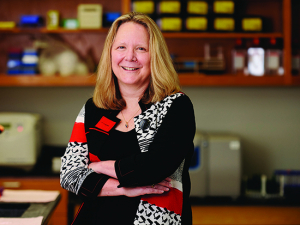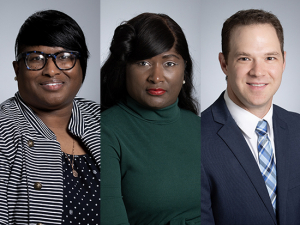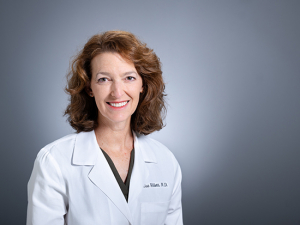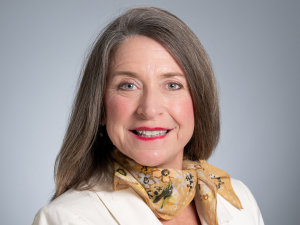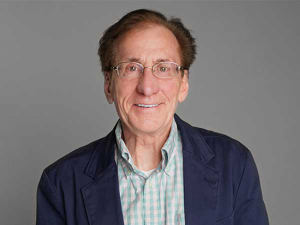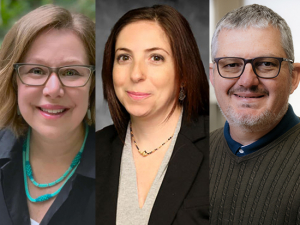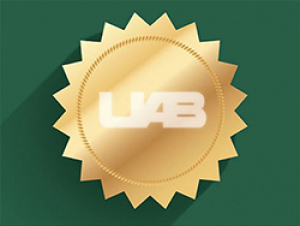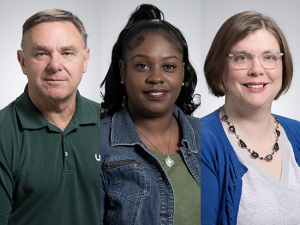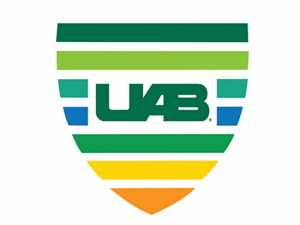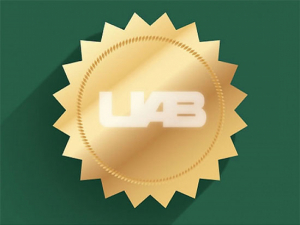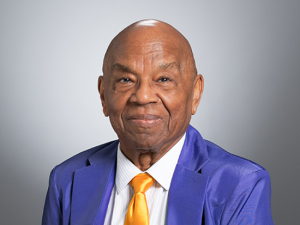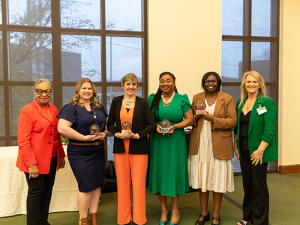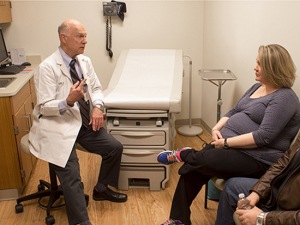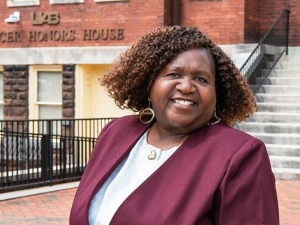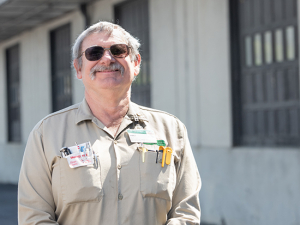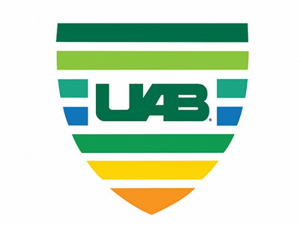 Alan Eberhardt, Ph.D., has used his position as a biomedical engineering professor to motivate and educate students to help others for the past 21 years. Because of this and his classroom teaching, he has been honored with the 2012 Ellen Gregg Ingalls/UAB National Alumni Society Award for Lifetime Achievement in Teaching.
Alan Eberhardt, Ph.D., has used his position as a biomedical engineering professor to motivate and educate students to help others for the past 21 years. Because of this and his classroom teaching, he has been honored with the 2012 Ellen Gregg Ingalls/UAB National Alumni Society Award for Lifetime Achievement in Teaching.
Under Eberhardt’s guidance, his students have developed instruments to aid children and adults suffering from a range of ailments and disabilities, including cerebral palsy, post-polio muscular atrophy, essential tremor and amputation. Many of these contributions came out of the professor’s Biomedical Engineering (BME) Senior Design class, the capstone design course in the BME curriculum. The course, developed by Eberhardt as part of the new BME undergraduate curriculum in 2004, requires student teams to develop a working prototype device and deliver it to a client by the end of the second semester each academic year.
“I’ve been blessed to have support from the National Science Foundation for the past 15 years in support of engineering-design education, and that has enabled me to expose students to real-world engineering problems and work with real-world clients,” Eberhardt says.
The NSF’s Research to Aid Persons with Disabilities program has given significant funding to Eberhardt for more than a decade through a highly competitive, peer-review grant program. This funding provides UAB students the tools necessary to learn their craft and help those in the community.
| Alan Eberhardt, Ph.D., has been honored with the 2012 Ellen Gregg Ingalls/UAB National Alumni Society Award for Lifetime Achievement in Teaching. |
Their faces light up
“Of all of the things I’ve done as a faculty member in teaching, research and service, this element, which combines teaching and service, has been my favorite,” Eberhardt says. “When you deliver a working device to a bunch of kids with cerebral palsy for example, and you see their faces light up when they can move about the room, climb stairs or walk for the first time, it’s pretty powerful stuff. And the students appreciate it.”
Eberhardt has established a strong network of partner institutions in Birmingham that contribute project ideas for the senior design class and work directly with the students throughout the design process.
United Cerebral Palsy of Birmingham, Hand-in-Hand Day Care, Engineers Without Borders, the Bell Center, UAB Hospital, Spain Rehabilitation Center, Alabama Department of Rehabilitation Services, Tranquil Waters and Children’s Hospital of Alabama all have contributed ideas. The interaction between the students and these clients, which include occupational therapists, physical therapists and doctors, provide unique real-world constraints. The client expects a working device within an academic term.
Under Eberhardt’s guidance, BME seniors have delivered more than 50 working prototypes or completed projects that often provide clients some access or capability lost due to a disability. The satisfaction the students get from completing the project is not lost on Eberhardt — he’s as invested in the success of each project as his students.
“Truthfully, senior design students often display a love-hate relationship with the class because it’s probably the hardest thing they’ve ever done,” he says. “In the end though, when they deliver that device that works and see the kids and clients light up at how great the device is and how it’s going to help them, it’s just a great thing to watch.”
Strong, thoughtful guidance
Eberhardt has a strong record of undergraduate and graduate teaching in mechanics, biomechanics, applied mathematics and senior design.
| Under Eberhardt’s guidance, BME seniors have delivered more than 50 working prototypes or completed projects that often provide clients some access or capability lost due to a disability. The satisfaction the students get from completing the project is not lost on Eberhardt — he’s as invested in the success of each project as his students. |
Students from mechanical engineering, materials science, physics and other departments regularly enroll in his courses on continuum mechanics, fracture mechanics, biomechanics and engineering analysis. Timothy Wick, Ph.D., professor and chair of the Department of Biomedical Engineering, says Eberhardt has the expertise, dedication, patience and energy necessary to teach this broad range of interdisciplinary topics and do so effectively.
“Alan provides strong, thoughtful guidance that enables student success, and he is an excellent classroom teacher,” Wick says. “He brings expertise, passion and integrity to the classroom and expects nothing less from the students.”
The students respond to this. Undergraduate and graduate students consistently rate Eberhardt’s courses highly, and peers recognize him as one of the best teachers in the School of Engineering. In fact, Eberhardt has been nominated for the UAB President’s Award for Excellence in teaching on three occasions — 2000, 2002 and 2006 — and was selected as the School of Engineering’s most outstanding teacher in 2002.
Eberhardt says his mission as a teacher always has been to be an interpreter between the textbook and the students.
“I’ve always looked to be an effective translator,” he says. “My philosophy is not to waste students’ time, and I think students have appreciated that. They have indicated it was worthwhile to come to class because they were able to learn some pretty challenging subjects they might not have been able to learn on their own.”
Eberhardt recently was appointed associate dean of the School of Engineering and began his new role Aug. 1. Initially, he’ll spend half of his time working in administration and the other half in his department. He intends to continue his efforts in undergraduate design education and develop new collaborations with the School of Business and the UAB Research Foundation.
He says the Ingalls/Alumni award is a nice gift to receive as he moves out of his traditional role as a full-time instructor.
“I’m really grateful and appreciate all of the support and the students who wrote letters for me,” Eberhardt says. “It means a lot.”

